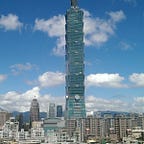HILD 12 — Discussion 6
I think that the most relevant and prevalent effects of the militarization of Okinawan society and subsequent spy-labelling is the erosion of the indigenous Okinawan/Ryukyu identity and individual agency. In terms of Japanizing the Okinawan islands and its people, “the goal was not simply the national identity of ‘the Japanese’ but the ideal home life as well” (Tomiyama 127). This meant a total suppression of all aspects of “everyday life” of the Okinawan society, including “the Okinawan language, bare feet, pig toilets, graves, bone washing, sexual play (moashibi), songs on the sanshin, celebrations, hygiene problems, and tardiness (Tomiyama 124). As an example, “teachers… cultivated snitches” in classrooms to discourage the Okinawan language from being spoken, and Okinawans became “surveilled” by both the state and “their peers” in search of “‘moral criminals’”(Tomiyama 125).
Being ‘Japanese’ became synonymous with all aspects of daily life, and anyone who veered from this perceived notion of being Japanese would be treated with suspicion. Naturally, anyone who sought to express themselves different also went against the solemn atmosphere of wartime Okinawan society, and as such individuality would be seen as a deviant, corrupt habit that must be corrected. In other words, with the risk of being labeled as a spy and becoming ostracized by one’s community, an individual would be pressured into conforming to increasingly oppressive policies applied to wartime Okinawa. Indeed, “military laws, which were never supposed to be applied to noncombatants, were gradually expanded to cover the civilian population” and “those who did not obey military law were identified as spies and executed” (Tomiyama 124, 128). By cultivating a culture of snitches, mass surveillance from peers, and the suppression of Okinawan cultural expression, actions and habits of daily life itself would disincentivize subversion against the state — or rather, going against the ‘norm’ imposed by the state. Be it active violence, conspiratorial gossip, or even something as innocent as speaking the Okinawan language (and thereby expressing an ‘Okinawan’ identity that is deemed inferior and incorrect as opposed to the overarching ‘Japanese’ identity), any action deemed subversive by the state becomes taboo — the individual, subject to psychological scrutiny by both the state and its people as well as physical violence, will have little choice other than to accept the tightening grasp of Japanese imperialism.
This intense pressure to remain conformed to the norms of society explains why Okinawan people may have felt ambivalent or chose to remain silent about the Korean comfort women around them. The Okinawan people must have been aware of the sexual exploitation of Korean women, because even if the public did not have active contact with these women, testimonies verified that Okinawans knew many homes were being “requisitioned” to become centers of military organization as well as comfort stations (Matsumura, Lecture 5). The fear of standing out and suffering psychological and physiological consequences subsequently eroded and subdued individual impetus to take action against such injustices.
